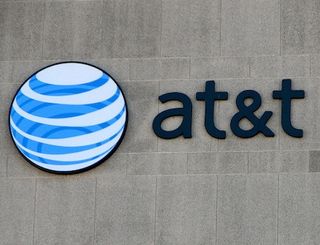AT&T: INCOMPAS-Verizon BDS Advocacy Is No Compromise

In comments on the FCC's proposed business data services revamp, AT&T took aim at a proposed compromise approach to business data services (BDS, formerly branded "special access" services) regulation from incumbent local exchange carrier (ILEC) Verizon and competitive carriers represented by INCOMPAS, which AT&T says is not a compromise at all.
Special access is the business broadband service that incumbent telcos (ILECS) dominated because they had built out the networks. The FCC requires ILECS to lease those lines (unbundle) to those competitive telcos (CLECs) and cable companies at reasonable rates.
The FCC proposed something similar to the INCOMPAS/Verizon framework when in April it voted a proposal, along party lines, phasing out the presumption of regulating the rates of historically "dominant carriers"—the ILECs—as a way to boost competition from "nondominant" CLECs (competitive local exchange carriers) and from cable competitors and instead regulate the rates of any of them as it deems necessary.
In its comments on the BDS revamp, which were due this week, AT&T, no fan of that FCC proposal, said that there is no evidence for price caps and certainly not in the "pretend" compromise between "a CLEC and a sometimes ILEC."
"Sometimes" because AT&T said that having shed much of its wireline operations and with the planned purchase of XO Communications, Verizon is now, like Sprint, a net purchaser, rather than supplier, of BDS.
Given that, said AT&T, "its joint proposal with INCOMPAS [which represents competitive carriers and some edge providers] is thus not a compromise, which requires two parties with divergent interests. It is simply joint advocacy to advance their common interests."
Cable operators are equally unhappy with the proposal to potentially regulate them. The National Cable & Telecommunications Association has said that the FCC was reversing basically 40 years of precedent for not regulating new entrants, a move that would jeopardize the gains cable operators had made against the incumbent telcos with the lion's share of the market.
Broadcasting & Cable Newsletter
The smarter way to stay on top of broadcasting and cable industry. Sign up below
(Photo via Bill Bradford's Flickr. Image taken on March 4, 2016 and used per Creative Commons 2.0 license. The photo was cropped to fit 3x4 aspect ratio.)
Contributing editor John Eggerton has been an editor and/or writer on media regulation, legislation and policy for over four decades, including covering the FCC, FTC, Congress, the major media trade associations, and the federal courts. In addition to Multichannel News and Broadcasting + Cable, his work has appeared in Radio World, TV Technology, TV Fax, This Week in Consumer Electronics, Variety and the Encyclopedia Britannica.

